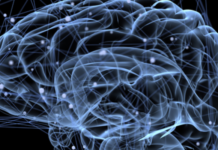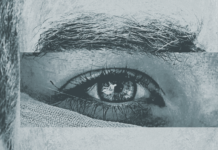Depression Discrimination More Severe in High Income Countries
According to a study published in this month’s British Journal of Psychiatry, people diagnosed with depression in high-income countries are more likely to limit...
The Concept of Schizophrenia is Coming to an End – Here’s Why
From The Conversation: Many researchers are beginning to acknowledge that the concept of "schizophrenia" as a discrete, hopeless, and deteriorating brain disease does not exist. In...
Valuing Posttraumatic Growth in Psychosis
Individuals who experience psychosis can also experience posttraumatic growth, which can be a central component of the recovery paradigm.
International Psychologists To Host Public Webinar on Rational Emotive Behavior Therapy
The Society for International Psychology, Division 52 of the American Psychological Association, will host a webinar entitled “The Humanistic, Vigorous and Universal Approach of Rational Emotive Behavior Therapy.”
81% Recovery from Psychotic Breaks? Psychiatrist Reflects on Open Dialogue Method
Psychiatrist Tom Stockman has been posting a series of articles on his blog Mandala, reflecting on the Open Dialogue method for intervening in psychiatric...
Using Breathing-Based Meditation to Treat Depression
Study reveals data suggesting yogic breathing may be helpful in treating depression for patients who have not respond to antidepressants
How Do We Prevent Loneliness?
Loneliness has been linked to negative health outcomes, but there are no interventions clearly proven to ‘fix’ the problem.
Psychologist Rethinks Psychotropic Medications, Calls for Renewed Dialogue
Psychologist and Professor Amber Gum has published the story of her personal journey of rethinking psychotropic medication in a special issue on "The Politics of Mental Health" in The Journal of Medicine and the Person. Influenced by Mad in America and the work of Robert Whitaker, Gum became aware of evidence that “suggests that psychotropic medications are less effective and more harmful than most believe” and now hopes to encourage other mental health professionals and researchers to engage in open-minded, critical self-assessment of standard practices.
Emotional Intelligence Needs a Rewrite
From Nautilus: The traditional notion of emotional intelligence is based on two assumptions: that it is possible to detect others' emotions accurately, and that emotions...
Flexible Treatment Planning Improves Depression Outcomes in Youth
Researchers explore the effects of augmented treatment at various points in interpersonal psychotherapy for adolescents diagnosed with depression, highlighting previously unidentified critical decision points (i.e., relatively early in the treatment sequence).
Researchers Develop New Model for Understanding Depression
Acknowledging that current depression treatments are failing many people, researchers from Michigan State and MIT have developed a new model for understanding how multiple psychological, biological, social and environmental factors contribute to depression.
New Traction for Art Therapy as a Treatment for Depression
New study investigates the acceptability of a phenomenologically informed, manual-based art therapy for clients diagnosed with moderate to severe depression.
The Revolution in Psychotherapy
Since the time of Freud, the field of psychotherapy has assumed that modalities and techniques were the instruments of change in psychotherapy. But the evidence is mounting that modalities and techniques have relatively little to do with effectiveness; evidence shows that it is the human elements of psychotherapy that are the most potent agents of healing
Neuroscience-based Treatment Program Proposed for Adolescent Depression
A study published in Frontiers in Human Neuroscience proposes a new model for the treatment of adolescents diagnosed with major depressive disorder (MDD).
Massachusetts Launches New Strengths-Based Early Psychosis Program
ServiceNet, a mental health and human service agency in western Massachusetts, received a three year, two million dollar grant to launch a program designed to support young adults who have recently experienced their first episode of psychosis. The Prevention and Recovery Early Psychosis (PREP) program is funded by the Massachusetts department of mental health and is designed to treat psychosis as a symptom, not an illness, resulting from other illnesses, substance abuse, trauma, or extreme stress.
How Does Mindfulness Work?
A new study explores how mindfulness impacts self-compassion and meaning in life to increase mental health and wellbeing.
“Hearing Voices: The People Who Say Talking Back is the Only Answer”
Journalist Emma Reynolds profiles Amanda Waegeli, Ron Coleman, Nathan Grixli and Lyn Mahboub about their experiences coming to the Hearing Voices Network (HVN). HVN was established 10 years ago in Australia and provided a support group that encouraged people to listen to their voices rather than trying to block them out. The group now operates in 25 countries.
“Life, Animated: A Remarkable Story of How a Family Reached Their Autistic Son Through...
A new documentary “Life, Animated,” which premiered at the Sundance Film Festival, tells the story of a man with autism who learned to interact...
“Can Madness Save the World?”
Writing for CounterPunch, Paris Williams writes that when an individual is experiencing what has been termed “psychosis,” it is important to recognize that this may also be the manifestation of a breakdown in their larger social groups, the family, society, and even the species.
“Why We Need to Abandon the Disease-Model of Mental Health Care”
In a guest blog for the Scientific American, Peter Kinderman takes on the “harmful myth” that our more distressing emotions can best be understood as symptoms of physical illnesses. “Our present approach to helping vulnerable people in acute emotional distress is severely hampered by old-fashioned, inhumane and fundamentally unscientific ideas about the nature and origins of mental health problems.”
Lack of Face-to-Face Contact Doubles Depression Risk for Older Adults
New research suggests that more frequent in-person contact lessens the risk of depression in older adults. The study, published in this month’s issue of the Journal of the American Geriatric Society, found that in Americans over fifty the more face-to-face contact they had with children, family and friends, the less likely they were to develop depressive symptoms.
In Praise of Patience as a Prescription for Trauma
For Aeon, Samira Thomas writes that while resilience is attracting a lot of attention from psychology, patience in an underexplored and undervalued virtue in...
Psychologists To Livestream Summit on Global Interdisciplinary Health Care
The American Psychological Association is hosting a two and half day interdisciplinary summit on November 3rd through 5th entitled Global Approaches to Integrated Care: Translating Science And Best Practices Into Patient-Centered Health Care Delivery. The summit features presentations and discussions on social determinants of health, demographics, culture and health disparities, and patients’ perspectives, among others. It can be livestreamed here.
Not Everyone Wants to Silence the Voices in Their Heads
From Science of Us: There seems to be a growing interest in the concept of healthy voice-hearing. The idea that hearing voices may not be...
Victims of Success: An Update from Mad in America Continuing Education
Within days of announcing the webinar and providing the link to register, we were deluged with enrollments. It turns out that a great many professionals, advocates and clinical managers are interested in learning about Open Dialogue and its application to an American community.




















